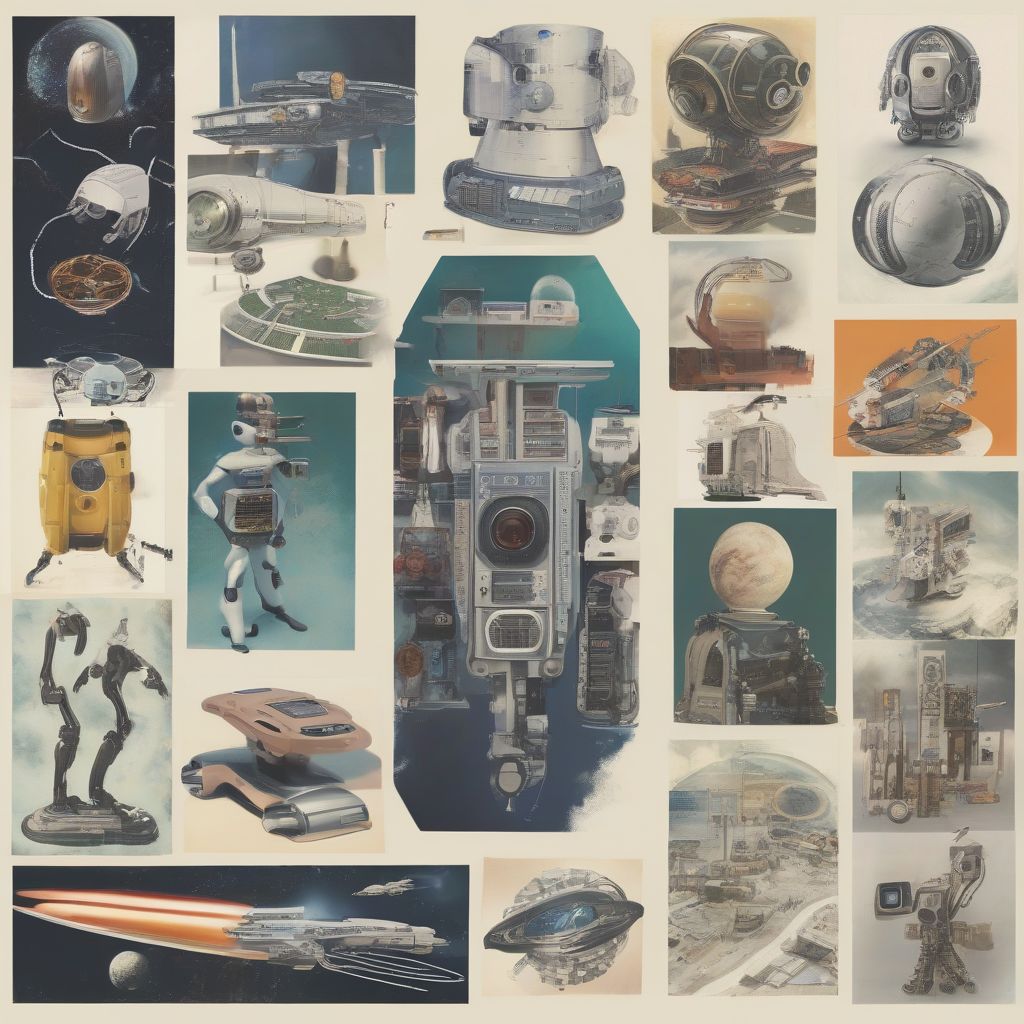Imagine a world where technology surpasses our wildest dreams, where spaceships traverse the cosmos, and artificial intelligence challenges our very notion of humanity. Now, realize that this world, often confined to the pages of science fiction novels, has subtly woven itself into the fabric of our everyday lives. Science fiction, far from being a mere genre of entertainment, acts as a mirror reflecting our anxieties, aspirations, and the boundless possibilities of the human spirit. But how exactly do we unpack this influence? How can we discuss the profound ways science fiction has shaped our popular culture?
Unmasking the Impact: Exploring Key Themes
Discussing the influence of science fiction on popular culture requires peeling back the layers, much like an onion, to reveal the intricate thematic connections:
1. Technological Innovation: From Fiction to Reality
One of the most evident influences of science fiction is its uncanny ability to predict and inspire technological advancements. Jules Verne’s “Twenty Thousand Leagues Under the Sea” foreshadowed the submarine, while the communicators in “Star Trek” paved the way for the ubiquitous cell phone.
 Science Fiction Technology
Science Fiction Technology
[amazon bestseller=”science fiction technology”]
2. Social Commentary: Holding Up a Mirror to Society
Science fiction often serves as a platform for social commentary, exploring issues like inequality, environmental degradation, and the ethical implications of technology. Think of Suzanne Collins’ “The Hunger Games” and its stark portrayal of social stratification or the exploration of artificial intelligence and sentience in “Ex Machina.”
3. Expanding Our Horizons: The Power of Imagination
Above all, science fiction ignites our collective imagination. It pushes us to envision alternative futures, consider different perspectives, and ultimately, broaden our understanding of what it means to be human. From the dystopian societies in “Divergent” to the exploration of alien cultures in “Dune,” science fiction challenges us to question our place in the universe.
Engaging in the Discussion: Key Talking Points
Now that we’ve identified the key themes, how do we effectively discuss them? Here are some talking points to fuel the conversation:
- Specific Examples: Ground your arguments in concrete examples. Cite specific science fiction works, characters, or technologies and draw parallels to their real-world counterparts.
- Historical Context: Consider the historical context in which a work of science fiction was created. How did the social, political, or technological landscape of the time influence the themes and messages conveyed?
- Evolution of Tropes: Trace the evolution of common science fiction tropes – time travel, artificial intelligence, dystopian societies – and how their portrayal has changed over time, reflecting evolving societal anxieties and hopes.
- Impact on Other Art Forms: Explore how science fiction has permeated other art forms, influencing movies, television shows, video games, and even fashion.
Delving Deeper: Questions to Consider
To further enrich your discussion, delve into these thought-provoking questions:
- Has science fiction become a self-fulfilling prophecy, shaping our technological trajectory?
- Does science fiction merely entertain, or does it carry a responsibility to provoke critical thinking about societal issues?
- How has the portrayal of gender, race, and other social identities in science fiction evolved, and what does this reveal about our changing societal norms?
Conclusion: Embracing the Dialogue
Science fiction, in its myriad forms, offers a powerful lens through which we can examine our world, confront our anxieties, and imagine a future brimming with possibilities. By engaging in thoughtful discussions about its influence on popular culture, we can gain a deeper appreciation for its enduring power and relevance in shaping our collective consciousness. So, the next time you encounter a futuristic gadget, a thought-provoking film, or a dystopian novel, remember that you’re witnessing the echoes of science fiction, whispering possibilities and urging us to ponder the boundless potential of humanity.
Let us know your thoughts! What are some of your favorite examples of science fiction’s influence on popular culture? Share your insights in the comments below.
